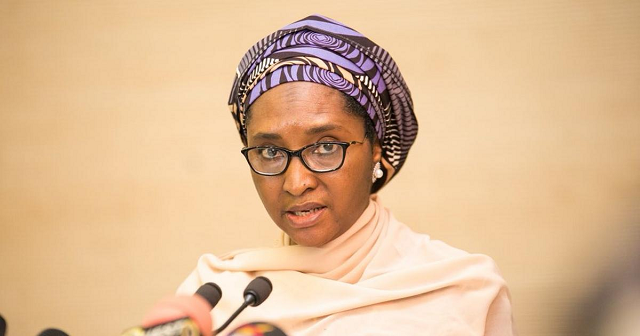The Federal Government on Thursday said it had deducted N194.31 billion from oil and revenue revenue for the payment of fuel subsidy as of May this year.
The Minister of Finance, Budget and National Planning, Zainab Ahmed, disclosed these at the presentation of the draft for 2022-2024 Medium Term Expenditure Framework and Fiscal Strategy Paper in Abuja on Thursday.
According to her, the government is planning to spend N900 billion on petrol subsidy in 2022.
Ahmed stated that the amount the government had been spending on subsidizing petrol could be redirected to more productive sectors of the economy such as health, education and infrastructure.
Ahmed said, “This is costing us big time. We are spending over N150 billion on subsidy. That means NNPC has to use that amount of money to pay for PMS and distributing it. That is money that the federation account can share.
“Imagine what we could have done with that amount. How many schools you can build, how many health centres. It is not wise; it is not wise because we are hurting our economy.”
READ ALSO: PenCom Ready To Clear N100bn Pension Arrears Of Govt Retirees
In her presentation. she said, “Oil and gas deductions were N194.31 billion or 45.8 per cent more than the budget. This mainly attributed to petroleum subsidy costs which was not provided for in the 2021 budget.”
A review of the 2022 Federal Government projected spending showed that the planned subsidy payment budget of N900 billion for next year is higher than the N261.2 billion budgeted for overhead costs for Government-Owned Enterprises(GOE); N567.02billion for pension, gratuities and retirees; and N366.13 billion capital supplementation budget.
It also exceeds the N292.7 billion that had been allocated for sinking fund, N750.03 billion personnel cost for Government Owned Enterprises, and N335 billion overhead cost.
When the global oil price started rising in January above the 2021 budget benchmark of $40 per barrel set by the Nigeria government, the government returned to the payment of subsidy.
READ ALSO: FG May Reconsider Stance On Fuel Subsidy As Oil Price Approaches $56
The increase in global crude oil prices had also led to a corresponding rise in the landing cost of imported petrol, which is currently N234 per litre according to petrol pricing template of Petroleum Products Pricing Regulatory Agency (PPPRA).
However, the pump price of the product had remained unchanged at an average of N162 per litre.
The government stalled on increasing pump price since February due to ongoing negotiations it entered with organised labour on the least painful strategy to manage the increase in the global price of crude oil, which has led to increase in petrol prices.













